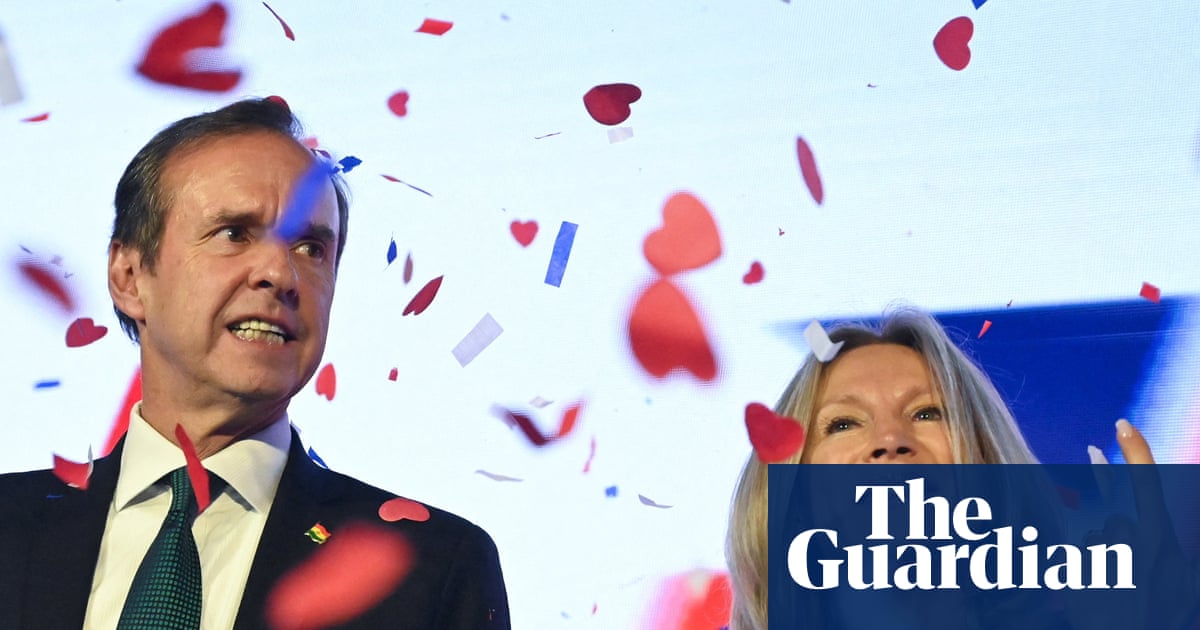
The preliminary results of Bolivia’s presidential election signal a historic political shift, as the leftist Movimiento al Socialismo (MAS) party faces the end of nearly 20 years of dominance. Two right-wing candidates, Rodrigo Paz Pereira and Jorge ‘Tuto’ Quiroga, are set to compete in a runoff election on October 19.
Surprising First-Round Results
Initial tallies from Bolivia’s electoral court show centre-right Senator Rodrigo Paz Pereira leading with 32.1% of the vote, followed by Jorge ‘Tuto’ Quiroga, a former president, with 26.9%. Paz Pereira’s campaign, which started with only 3% in early opinion polls, gained significant traction thanks to his anti-corruption message and his partnership with running mate Edman Lara Montaño, a former police captain known for exposing corruption.
“We will fight corruption head-on, dammit!” declared Paz Pereira during his victory speech.
A Shift from Past Dominance
For MAS, the first-round defeat is significant. Eduardo del Castillo, the party’s candidate and interior minister, received just 3.15% of the vote. This marks a stark contrast from the party’s past first-round victories under leaders like Evo Morales and current President Luis Arce. Morales himself remains a controversial figure, currently wanted on an arrest warrant for alleged misconduct—a charge he denies, calling it a political attack.
Del Castillo’s low performance is just enough for MAS to retain its legal status, as Bolivian law requires parties to secure at least 3% of the vote to remain active.
Economic Crisis Takes Center Stage
The runoff campaign will likely focus on Bolivia’s worsening economic crisis—the most severe in four decades. Rising inflation, fuel shortages, and a lack of U.S. dollars have left the country’s economy in shambles, contributing to the growing public discontent with MAS and its leadership.
High Rates of Null Votes
Interestingly, 19.1% of ballots were null or void—a figure significantly higher than the historical average of below 5%. Analysts attribute this to calls from Morales and other MAS leaders for their supporters to cast protest votes, rejecting both the right-wing candidates and the election process itself.
International Oversight and Incidents
More than 2,500 observers, including representatives from the European Union and the Organization of American States, monitored the election and deemed it largely free of irregularities, with only isolated incidents reported. One notable event involved Andrónico Rodríguez, a former MAS senator turned independent candidate, who was attacked by protestors while attempting to vote.
What’s Next for Bolivia?
The upcoming second round could prove decisive for Bolivia’s political and economic future. Analysts suggest that Rodrigo Paz Pereira may maintain an advantage, given his campaign’s focus on unity and anti-corruption. Meanwhile, Quiroga’s experience as a former president could appeal to voters seeking seasoned leadership during uncertain times.
All eyes now turn to October 19 as Bolivia prepares for its first presidential runoff election in two decades.



